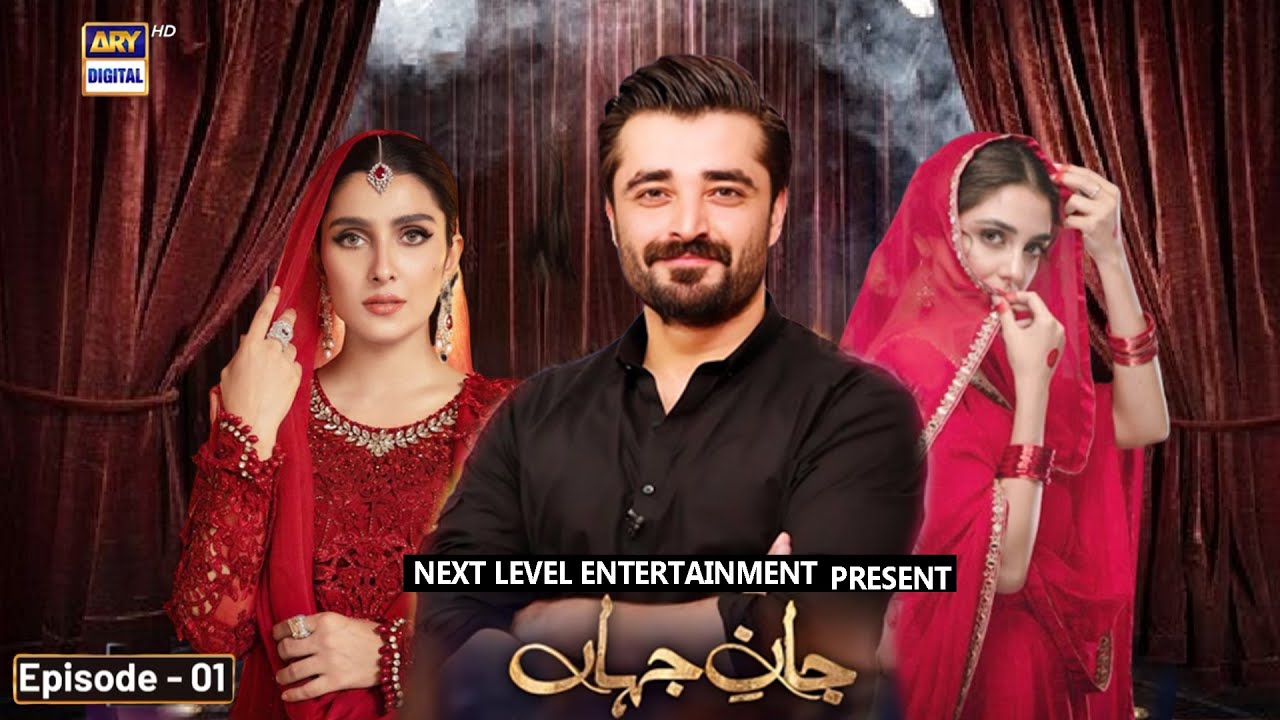“Jaan E Jahan” makes its return to its regular schedule post-Ramadan, airing on Fridays and Saturdays one again. This comes as a welcome relief for fans who felt one episode a week was simply not enough. In recent weeks, the story has moved away from the romance and more towards Shehram’s (Hamza Ali Abbas) personal growth and discovering his inner strength. Starring Hamza Ali Abbasi, Ayeza Khan, Asif Raza Mir, Noor Ul Hassan, Savera Nadeem, Haris Waheed, Raza Talish, Srha Asghar, Emmad Irfani, Maryam Nafees, Nawal Saeed, Kinza Malik and Zainab Qayyum, “Jaan E Jahan” is written by Rida Bilal and directed by Qasim Ali Mureed.
In episode 30, Shehram meets Mahnoor (Ayeza Khan) outside the school and Mahnoor behaves in a way neither Shehram nor the audience would have ever expected. She not only accuses Shehram of informing Taimoor (Emmad Irfani) of his feelings for her, but also sarcastically remarks for him to bring his mother to her engagement. This is a particularly callous moment for Mahnoor, one that does not sit well with viewers.
We, as human beings, are reflections of our thoughts, ideas and beliefs. But what happens when we’re experiencing great inner turmoil? Does that not reflect in our personality? From the beginning, we have seen Shehram and Mahnoor as these positive rays of light. Unfortunately, Shehram’s positivity took a huge blow after Murad Shah’s death, throwing him into depression and a deep disinterest in the world around him. These were not moments of pride for Shehram and he was, for lack of a better word, weak. At that time, Mahnoor entered his life and brought him out of the darkness. Shehram loves Mahnoor – and that’s why her words cut him so deeply, particularly because she knows he is alone. He does not have a support system, barring his younger brother. It is this week where we sit up and take notice, deciding to finally label Mahnoor’s behavior as….well, “mean.” In our worst moments, we are capable of being mean and hurtful – and Mahnoor’s anger is now bubbling out onto the surface. Do we sympathize with her? Yes. But can we also acknowledge that she’s behaving poorly and being unfair to both Shehram and Taimoor? Yes.
We also see Aaliyah (Srha Asghar) come into her own, realizing she truly does not want to be involved in this game between her father and Tabraiz (Haaris Waheed). While her father is using Tabraiz for his vendetta against Shehram, he isn’t taking her future into consideration, creating a future for her with a truly unpleasant man. Tabraiz and Aaliyah face off after his rude remarks and Aaliyah declares to her mother that she cannot marry him – something which her mother will most likely support her on. Characters like Aaliyah are a welcome change, women who understand acceptable behaviors versus unacceptable behaviors – and Tabraiz is completely out of line. Srha Asghar makes Aaliyah all the more lovable with her natural performance.
Many viewers speak of Tabraiz and his redemption, but what redemption? Not for a single moment should we forget that he’s the man behind Aamir’s (Saqib Sumeer) death. He mistreats Aaliyah and he even mistreats Gulzaib (Nawal Saeed) publicly the day after their wedding, keeping her his “dirty little secret.” Does such a man deserve redemption simply because he has a bad mother? Abdul (Raza Talish) is also Kishwar’s son and Shehram has been raised by her as well. If Tabraiz is a chip off the old block, it’s because it’s his own nature and choice to be that way. Haaris Waheed is doing such a great job in this role though, making Tabraiz an interesting character to watch. The final scene is a beautiful one between Abdul and Shehram as Abdul cries like a child with his father-figure, upset at being neglected and ignored within their home. There’s such a genuine bond between these two brothers, we root for their togetherness.
Hamza Ali Abbasi and Ayeza Khan are the stars of the show, without a doubt. They deliver front-and-center each week, giving the show’s best performances as Shehram and Mahnoor. However, each and every member of the cast is performing their roles to perfection. Savera Nadeem and Hamza Ali Abbasi’s scenes together are always a joy to watch with the tension and clash of personalities. Haaris Waheed is wonderful as our loathsome villain while Raza Talish is lovable as our soft-hearted Abdul. Srha Asghar is the perfect girl-next-door stuck between negative traditions and her educated mind. We could go on, but honestly, it’s Rida Bilal’s intelligent writing which makes “Jaan E Jahan” so enjoyable and Qasim Ali Mureed delivers a stunning canvas. “Jaan E Jahan” continues to be a blessing for Pakistani drama fans.

